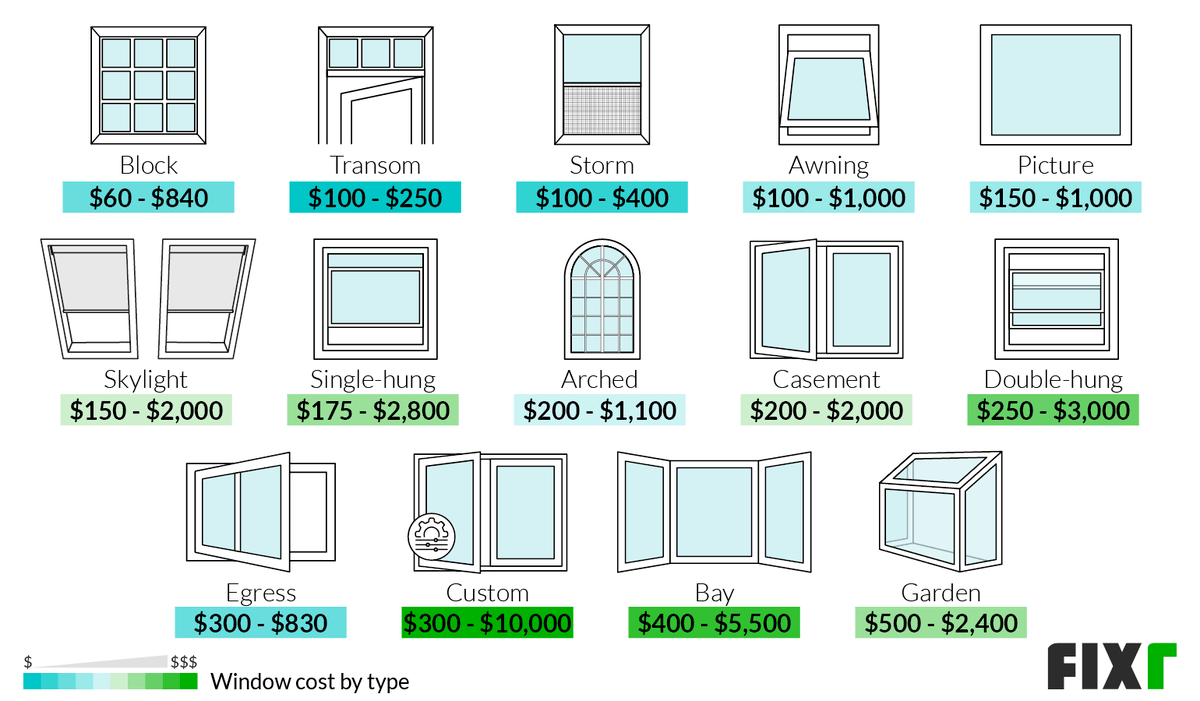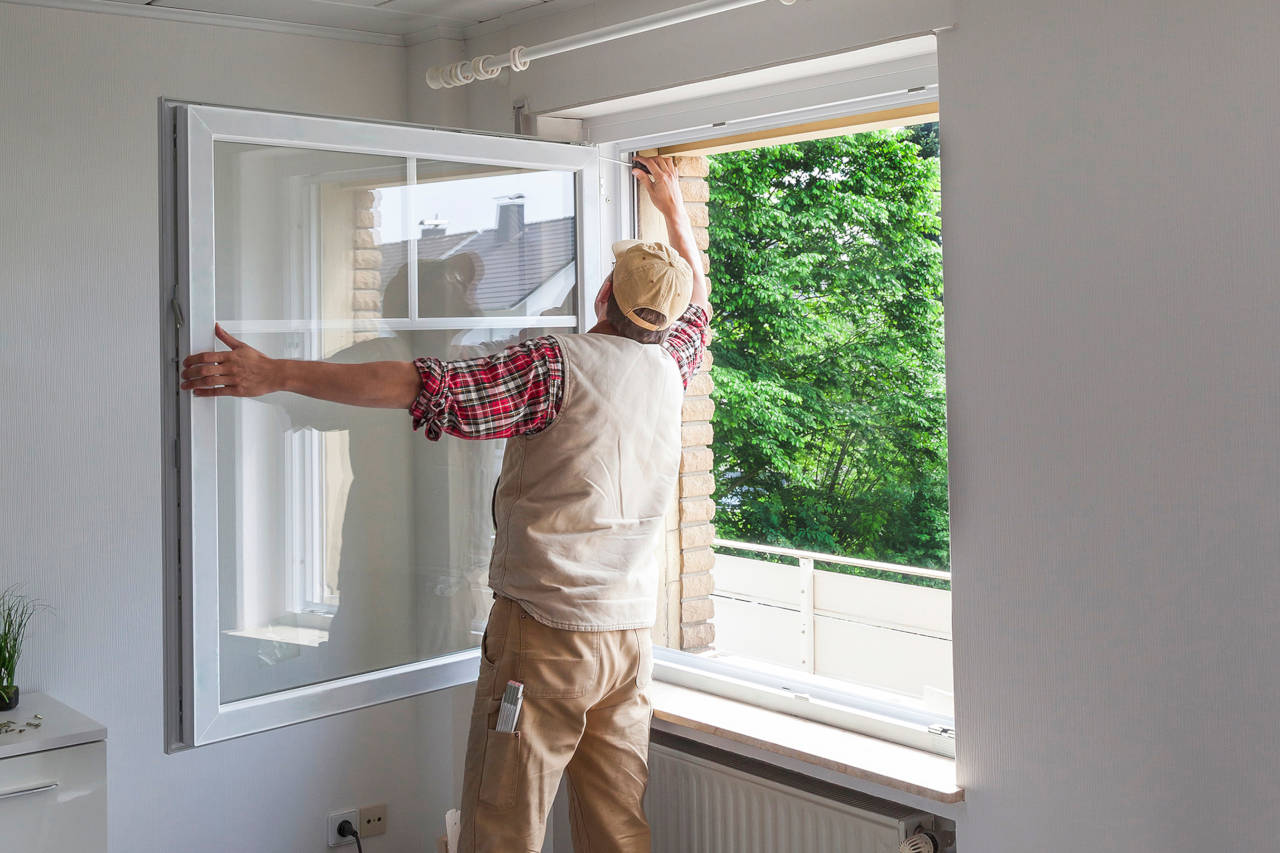New window installation cost is a crucial aspect to consider when upgrading your home. From the types of windows affecting prices to cost-saving tips and hiring professionals, this guide covers everything you need to know.
Explore the factors influencing costs, the breakdown of average expenses, and practical advice to make informed decisions about your window installation project.
Factors Affecting New Window Installation Cost
When considering the cost of installing new windows, various factors come into play that can impact the overall price. Understanding these factors can help homeowners make informed decisions about their window replacement project.
Types of Windows, New window installation cost
Different types of windows can affect installation costs due to variations in size, complexity, and materials. Common types include:
- Single-hung windows
- Double-hung windows
- Sliding windows
- Casement windows
- Picture windows
Window Size and Material Choice
The size of the window and the material chosen can significantly impact the overall cost of installation. Larger windows require more labor and materials, leading to higher installation costs. Additionally, the choice of materials, such as vinyl, wood, or aluminum, can affect the price due to differences in durability, energy efficiency, and aesthetics.
Complexity of Installation Process
The complexity of the installation process can also influence pricing. Factors such as the need for custom fittings, structural modifications, or specialized installation techniques can increase the overall cost of installing new windows. Additionally, factors like the number of windows being replaced and the accessibility of the installation site can impact the complexity of the process and, consequently, the cost.
Average Costs for New Window Installation

When it comes to new window installation costs, several factors can influence the final price. The type of window, material used, labor costs, permits, and disposal fees all play a role in determining the overall expenses. Let’s break down the average costs based on different aspects.
Average Costs by Window Type
- Single-Hung Windows: On average, single-hung windows can cost between $100 to $400 per window for installation.
- Double-Hung Windows: Double-hung windows are slightly more expensive, ranging from $150 to $600 per window for installation.
- Casement Windows: Casement windows tend to be pricier, with installation costs ranging from $200 to $800 per window.
Average Costs by Material
- Vinyl Windows: Vinyl windows are often the most affordable option, with installation costs averaging between $300 to $700 per window.
- Wood Windows: Wood windows are more costly, ranging from $500 to $1,000 per window for installation due to the material’s higher price and maintenance requirements.
- Aluminum Windows: Aluminum windows fall in the mid-range, with installation costs typically between $400 to $800 per window.
- Fiberglass Windows: Fiberglass windows are on the higher end of the price spectrum, averaging between $600 to $1,500 per window for installation.
Additional Expenses
- Labor Costs: Labor costs for new window installation can vary based on the contractor and location, but typically range from $50 to $100 per hour.
- Permits: Depending on local regulations, permits for window installation can cost anywhere from $50 to $200 per window.
- Disposal Fees: Disposal fees for old windows and debris removal can add an additional $50 to $200 to the overall installation costs.
Cost-Saving Tips for New Window Installation: New Window Installation Cost
When considering new window installation, there are several cost-saving tips that can help you reduce expenses without compromising on quality. By following these tips, you can make the most of your investment and enjoy the benefits of energy-efficient windows for long-term savings.
Additionally, proper maintenance of newly installed windows can help prolong their lifespan, saving you even more money in the long run.
Choose Energy-Efficient Windows
One of the best ways to save on new window installation costs is to opt for energy-efficient windows. While they may have a higher upfront cost, energy-efficient windows can help you save money on your energy bills in the long term.
These windows are designed to keep your home insulated, reducing the need for heating and cooling, and ultimately lowering your energy consumption.
Proper Installation and Sealing
Ensuring that your new windows are properly installed and sealed is crucial for maximizing energy efficiency and reducing costs. Proper installation helps prevent air leaks, which can lead to energy wastage and higher bills. Make sure to hire experienced professionals who can install your windows correctly and seal any gaps to improve insulation.
Regular Maintenance
To extend the lifespan of your newly installed windows and avoid costly repairs, it’s essential to perform regular maintenance. Cleaning your windows, inspecting for any damage, and lubricating moving parts can help prevent issues and keep your windows in top condition.
By taking care of your windows, you can avoid premature replacements and save money in the long term.
Hiring Professionals vs. DIY New Window Installation
When it comes to installing new windows, homeowners often face the decision of whether to hire professional window installers or attempt a DIY approach. Each option comes with its own set of advantages and considerations that should be carefully weighed before making a decision.
Advantages of Hiring Professional Window Installers
Professional window installers bring a wealth of experience and expertise to the job, ensuring that the installation is done correctly and efficiently. They have the necessary tools and skills to handle any challenges that may arise during the installation process.
Additionally, hiring professionals can save homeowners time and stress, as they can complete the job quickly and with minimal disruption to the household.
- Professional installation ensures that windows are properly sealed, reducing the risk of air leaks and water damage.
- Window installers are familiar with local building codes and regulations, ensuring that the installation meets all necessary requirements.
- Professional installers often provide warranties on their work, giving homeowners peace of mind knowing that they are covered in case of any issues.
Costs and Risks Associated with a DIY Installation Approach
While a DIY approach to window installation may seem cost-effective initially, it can end up being more costly in the long run if mistakes are made. Improperly installed windows can lead to energy loss, water damage, and other issues that may require costly repairs.
Additionally, DIY installation carries the risk of personal injury if proper safety precautions are not taken.
- DIY installation may void the warranty on the windows, leaving homeowners responsible for any future issues that may arise.
- Inexperienced individuals may struggle with the technical aspects of window installation, leading to subpar results and potential damage to the windows.
Importance of Certifications and Warranties when Choosing a Contractor
When selecting a professional window installer, it is crucial to consider their certifications and warranties. Certified installers have undergone training to ensure that they meet industry standards for quality and safety. Additionally, reputable installers often provide warranties on their work, giving homeowners added protection and peace of mind.
Certifications such as AAMA (American Architectural Manufacturers Association) and warranties from manufacturers can indicate the reliability and professionalism of a window installation contractor.
Last Word

In conclusion, understanding the nuances of new window installation costs empowers homeowners to make informed choices, balancing quality and budget effectively. Whether opting for energy-efficient solutions or weighing the pros and cons of DIY, this comprehensive guide equips you with the knowledge needed for a successful window upgrade.
Commonly Asked Questions
What types of windows can affect installation costs?
The installation costs can vary based on the window type, such as single-hung, double-hung, or casement windows.
How can maintenance help prolong the life of newly installed windows?
Regular maintenance like cleaning, lubricating hardware, and checking for leaks can extend the lifespan of your new windows.
What are the advantages of hiring professional window installers?
Professional installers bring expertise, ensure proper installation, and often provide warranties for their work.